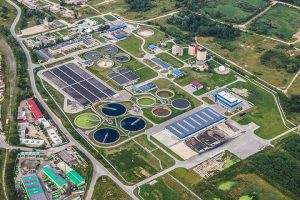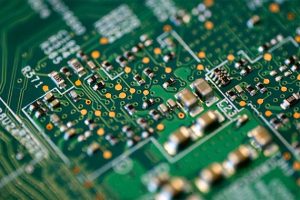
Bachelor of Science in Engineering Technology
Engineering technology focuses on the development, design and implementation of engineering and technological solutions in areas such as manufacturing, construction and product development. The engineering technology program emphasizes hands-on application and implementation.

Bachelor of Science in Environmental Engineering
Environmental engineering focuses on developing solutions to improve water and air quality, manage solid waste, promote renewable energy and mitigate climate changes. Environmental engineers use elements of biological, chemical, civil and mechanical engineering to manage natural resources sustainably to promote overall environmental health.

Bachelor of Science in Data Science
Be at the forefront of innovation and technological advancement around robotics, computing systems, artificial intelligence, hardware and software. Tackle complex problems and implement solutions that change our daily lives. Combine foundational coursework with technical applications through undergraduate research, collaborating with other engineering departments and programs around campus.

Bachelor of Science in Information Technology
The BS IT is a 120-credit hour program involving traditional IT core competencies supplemented by a range of technical electives in a range of topics including virtual environments, augmented reality, digital media systems and post-production processes, and 2D/3D animation.
Bachelor of Science in Industrial Engineering
The Bachelor of Science in Industrial Engineering has a core engineering curriculum during the first two years. The objective of this curriculum is to give the student a rigorous foundation in mathematics, natural sciences, basic engineering sciences, applied probability and computer science, as well as a complementary and meaningful exposure to the humanities and social sciences.
Bachelor of Science in Mechanical Engineering
With the Bachelor of Science in Mechanical Engineering from Mizzou, gain a foundation in mathematics, the basic sciences and engineering while taking core courses in mechanical sciences such as dynamics, engineering materials, manufacturing, fluid mechanics and heat transfer, and thermal-fluid sciences such as thermodynamics, fluid mechanics and heat transfer. Prepare for employment in industry or government or for further study toward a master's or PhD.

Bachelor of Science in Computer Science
Be at the forefront of innovation and technological advancement around robotics, computing systems, artificial intelligence, hardware and software. Tackle complex problems and implement solutions that change our daily lives. Combine foundational coursework with technical applications through undergraduate research, collaborating with other engineering departments and programs around campus.

Bachelor of Science in Computer Engineering
Help design and implement the next-generation of computing architecture and components. Gain a foundational understanding alongside technical skills to work with the systems of tomorrow. Conduct undergraduate research in areas such as autonomous systems, edge computing and artificial intelligence.
Bachelor of Science in Chemical Engineering
Use engineering, math, physics and chemistry to learn to design materials and products through chemical processes.

Bachelor of Science in Electrical Engineering
Help find solutions to global energy problems. You’ll learn about electrical power generation, communication systems and instrumentation. Explore circuit and microprocessor design, and gain an understanding of electromagnetic fields. Prepare to work with electrical systems and equipment.